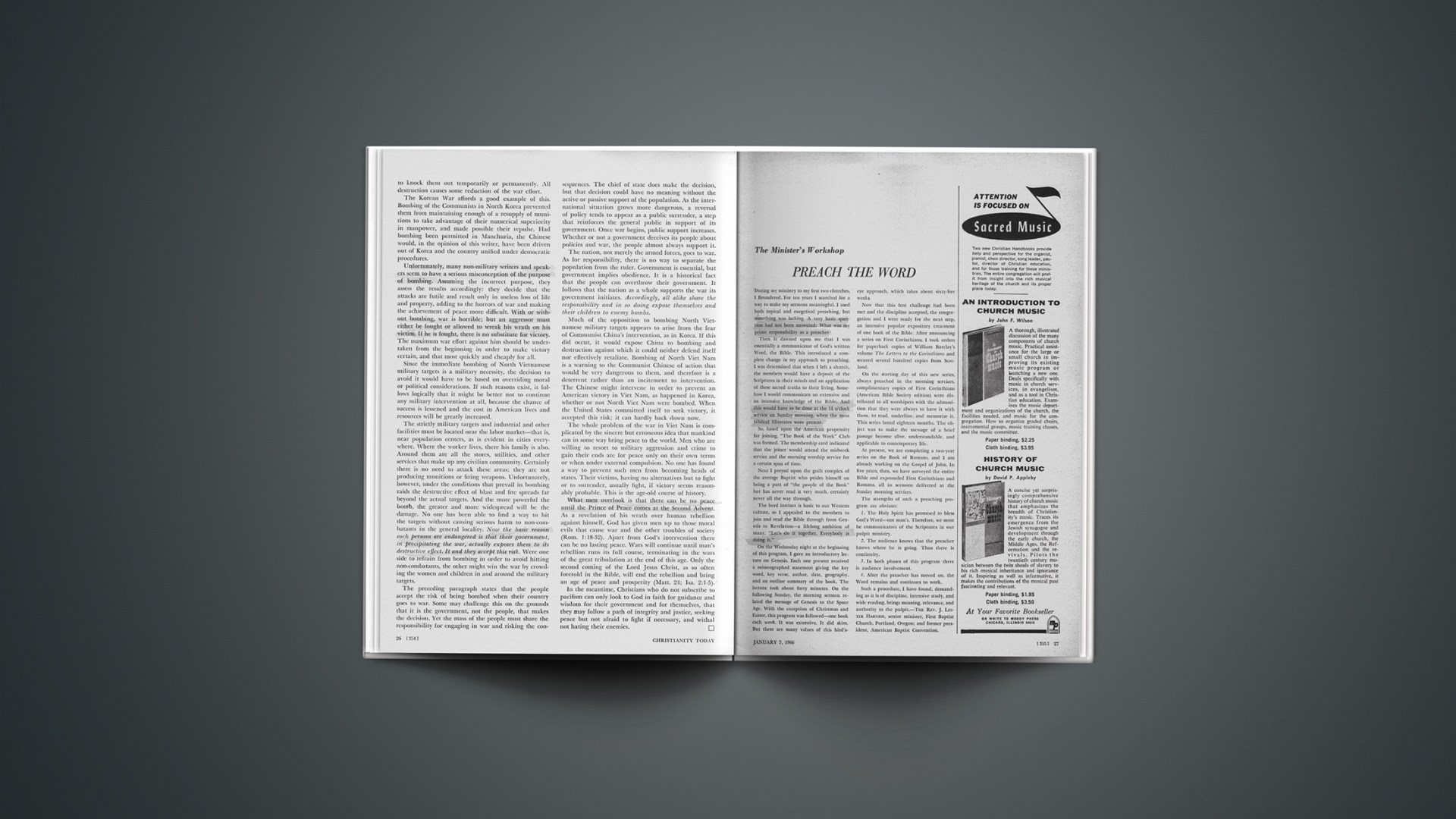During my ministry to my first two churches, I floundered. For ten years I searched for a way to make my sermons meaningful. I used both topical and exegetical preaching, but something was lacking. A very basic question had not been answered: What was my prime responsibility as a preacher?
Then it dawned upon me that I was essentially a communicator of God’s written Word, the Bible. This introduced a complete change in my approach to preaching. I was determined that when I left a church, the members would have a deposit of the Scriptures in their minds and an application of these sacred truths to their living. Somehow I would communicate an extensive and an intensive knowledge of the Bible. And this would have to be done at the 11 o’clock service on Sunday morning, when the most biblical illiterates were present.
So, based upon the American propensity for joining, “The Book of the Week” Club was formed. The membership card indicated that the joiner would attend the midweek service and the morning worship service for a certain span of time.
Next I preyed upon the guilt complex of the average Baptist who prides himself on being a part of “the people of the Book” but has never read it very much, certainly never all the way through.
The herd instinct is basic to our Western culture, so I appealed to the members to join and read the Bible through from Genesis to Revelation—a lifelong ambition of many. “Let’s do it together. Everybody is doing it.”
On the Wednesday night at the beginning of this program, I gave an introductory lecture on Genesis. Each one present received a mimeographed statement giving the key word, key verse, author, date, geography, and an outline summary of the book. The lecture took about forty minutes. On the following Sunday, the morning sermon related the message of Genesis to the Space Age. With the exception of Christmas and Easter, this program was followed—one book each week. It was extensive. It did skim. But there are many values of this bird’s-eye approach, which takes about sixty-five weeks.
Now that this first challenge had been met and the discipline accepted, the congregation and I were ready for the next step, an intensive popular expository treatment of one book of the Bible. After announcing a series on First Corinthians, I took orders for paperback copies of William Barclay’s volume The Letters to the Corinthians and secured several hundred copies from Scotland.
On the starting day of this new series, always preached in the morning services, complimentary copies of First Corinthians (American Bible Society edition) were distributed to all worshipers with the admonition that they were always to have it with them, to read, underline, and memorize it. This series lasted eighteen months. The object was to make the message of a brief passage become alive, understandable, and applicable to contemporary life.
At present, we are completing a two-year series on the Book of Romans, and I am already working on the Gospel of John. In five years, then, we have surveyed the entire Bible and expounded First Corinthians and Romans, all in sermons delivered at the Sunday morning services.
The strengths of such a preaching program are obvious:
1. The Holy Spirit has promised to bless God’s Word—not man’s. Therefore, we must be communicators of the Scriptures in our pulpit ministry.
2. The audience knows that the preacher knows where he is going. Thus there is continuity.
3. In both phases of this program there is audience involvement.
4. After the preacher has moved on, the Word remains and continues to work.
Such a procedure, I have found, demanding as it is of discipline, intensive study, and wide reading, brings meaning, relevance, and authority to the pulpit.—THE REV. J. LESTER HARNISH, senior minister, First Baptist Church, Portland, Oregon; and former president, American Baptist Convention.










